Aussie scientists identify gene that dramatically reduces Covid-19 effects
In a medical breakthrough, Aussie scientists have cracked why some people appear immune to Covid, paving the way for better treatment.
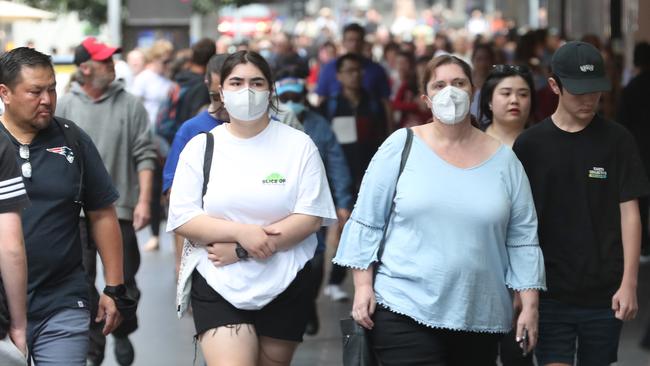
Science
Don't miss out on the headlines from Science. Followed categories will be added to My News.
In a huge medical breakthrough, Australian scientists have cracked why some people appear to dodge Covid-19 and others don’t — paving the way for better treatment and vaccines.
The research, published in Nature, shows that a person who carries one copy of the protective HLA-B15 gene is twice as likely to remain asymptomatic, while someone who carries two copies of the gene is eight times more likely to show no symptoms.
The global study conducted by the University of California and La Trobe University in Melbourne investigated the genetics and Covid-19 symptoms of almost 30,000 registered bone marrow donors, who were involved in a voluntary program to track Covid-19 infection and symptoms.
The group included a small cohort from Victoria and Queensland.
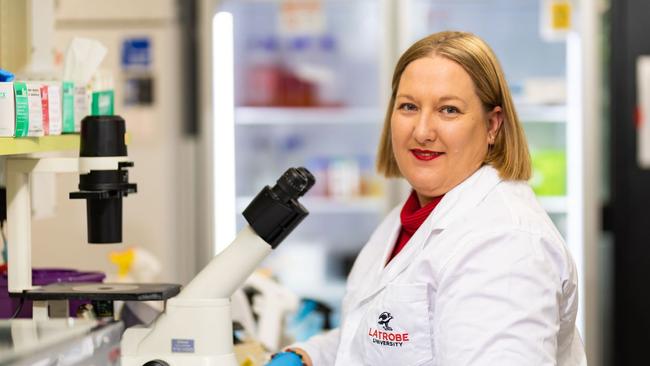
The researchers found that of 1428 unvaccinated donors with positive test results for Covid-19, 136 had no symptoms.
A high proportion of these asymptomatic donors were carrying the HLA-B15 gene, which was the first evidence of a genetic link.
The killer T cells, which help our bodies fight infection, had a strong immune response to Covid-19 in people with the HLA-B15 gene.
These killer T cells also had the capacity to recognise Covid-19 and its different variants, including the current Omicron variants.
La Trobe University lead researcher Professor Stephanie Gras said the study of infected but asymptomatic people could “enable us to identify new ways of promoting protection … by mimicking this immune ‘shield’ observed in individuals that can dodge Covid-19”.
“The HLA-B15 is able to bind a part of the SARS-CoV-2 virus that is similar in seasonal coronaviruses. These are the viruses responsible for the common cold during winter for most of most,” Prof Gras said.
“And because HLA-B15 binds and presents to this part of the viruses similarly, the killer T cells are able to recognise both, so if you had previous exposure to common cold this might protect you against Covid. And we think that this is the mechanism behind the HLA-B15 gene association with asymptomatic Covid infection.”

The researchers believe that understanding how asymptomatic cases occur is a “tremendous advantage” in fighting the disease because there is an “army that’s able to recognise the enemy early”.
“It’s like having soldiers that are prepared for battle and already know what to look for and can tell by the uniform that these are the bad guys,” Prof Gras said.
At least one in five people infected with Covid-19 remain asymptomatic, while almost 7 million people worldwide have died from the disease.
Prof Gras said a lot of research has focused on “severe Covid which was important because we needed to find a global solution”.
But now that we have vaccination options anti-viral drugs “it is a good time to turn to investigating people who are naturally protected which are those that remain asymptomatic for Covid infection”.
She described the study as “hugely rewarding” because it gives “meaningful information about how people can be naturally protected”.
“Usually you have to wait a very long time to get results you can release to the public but that is not the case here.”
New wave in Australia
The breakthrough comes as Australia enters its fifth Omicron wave, which has been brewing since February. But it has grown so slowly that many people may have not realised it until recent months.
Each Omicron wave has been smaller than its predecessor as Aussies have immunity both from vaccination and prior disease.
This means that the majority of people, if they get infection at all, will only suffer mild to moderate symptoms and not severely.
Over the last week, 8047 cases of Covid-19 were reported across Australia, an average of 1150 cases per day.
The highest number of cases were in NSW with 482 cases, followed by Queensland with 251 cases and then South Australia with 120 cases.
Professor’s nasal spray hack
A Melbourne health professor could hold the key to minimising the spread of Covid, after inventing a solution that could potentially protect Australians one spray at a time.
Monash University Adjunct Professor Don Campbell was ironing his clothes one day in May 2020 — four months after the virus arrived on Victorian shores — when he had a light-bulb moment.
“Not thinking about anything in particular, I said to my wife, ‘I think heparin as a nasal spray will block Covid.’ And she said, ‘Well what are you going to do about it?’” he told news.com.au.
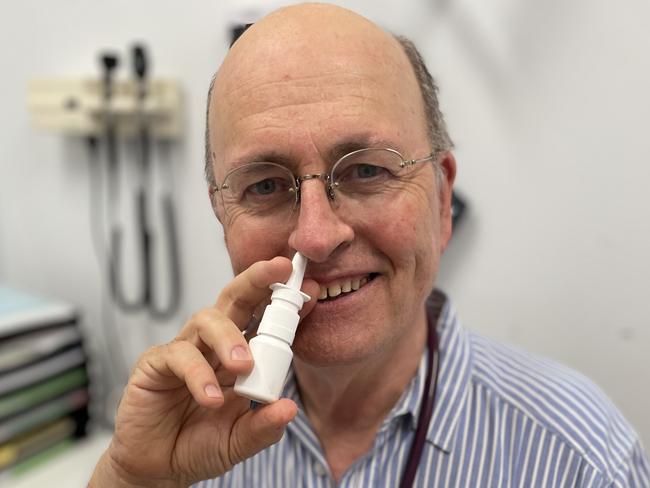
The spray’s key ingredient is the drug heparin, which is an anticoagulant — or blood thinner — that stops your blood from forming clots or making them bigger, according to the Cleveland Clinic.
Heparin is usually prescribed to prevent or treat certain blood vessel, heart and lung conditions and is used during open-heart surgery, blood transfusions, kidney dialysis and bypass surgery.
Prof Campbell, director of Northern Health’s Hospital Without Walls program, grew interested in heparin almost four decades ago, while he was doing research on the lung condition pulmonary fibrosis in the UK.
He later thought about the drug again several years after when his son was diagnosed with Kawasaki disease — which led to him having “problems with his blood”.
“They treated him and he got better and it was all successful, and my thought was, ‘Why didn’t they use heparin?’” he said. “That had been buzzing around in my bonnet all this time.”
According to Prof Campbell, health experts have known for 20 years the drug could also be used to block the proliferation of influenza in laboratory cultures.
He thought a similar concept could work for blocking Covid.
“I rang two colleagues — the Professor of Public Health Terry Nolan, and Gary Anderson, the Professor of Pharmacology at Melbourne University — and said, ‘I want to talk to you for two minutes,’” Prof Campbell said.
“‘At the end of two minutes, I want you to tell me I’m either crazy or tell me the two people I have to contact to take it further.’”
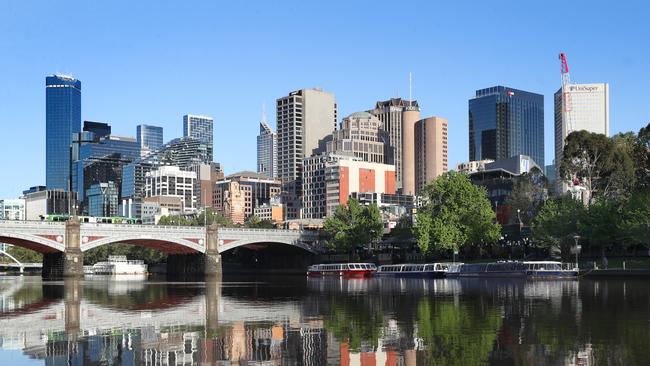
It was from here, Prof Campbell and a group of fellow researchers worked on bringing the idea to life while trying to fund the project at the same time.
After several unsuccessful attempts at securing funding, the researchers were finally able to secure $4.2 million from the Andrews government.
At the same time, Prof Campbell was testing the spray on himself with “religious devotion” every day, once in the morning and evening and again before going out to the shops.
The solution has been so effective, he believes it prevented him from contracting Covid.
“I have good reason on scientific grounds to believe it will prevent or reduce the risk of acquiring and transmitting Covid,” Prof Campbell said.
Currently, the nasal spray isn’t available to Australians as it still needs to undergo further testing, with the hope it will be rolled out by the end of next year.
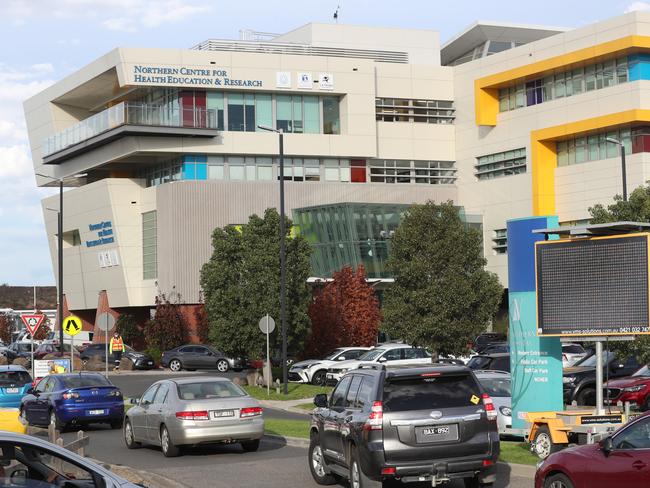
— with Rebecca Borg
carla.mascarenhas@news.com.au
Originally published as Aussie scientists identify gene that dramatically reduces Covid-19 effects





